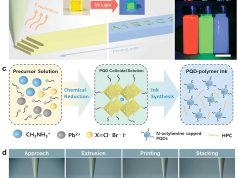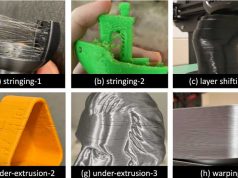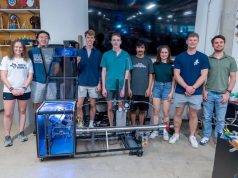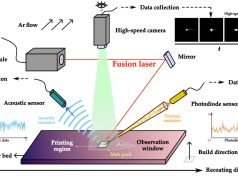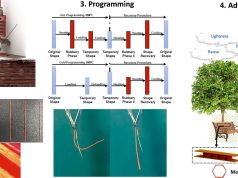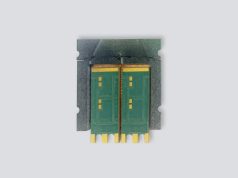In a recent publication in the journal Trends in Chemistry, researchers from the University of Twente look at the potential of 3D printing ceramics in micro-optics. These tiny ceramic structures can potentially be used to generate light and store information.
The research, initiated by the curiosity of students including J.P. Winczewski (former PhD student), J. Arriaga-Dávila (Master’s student in Nanotechnology) and C. Rosero-Arias (PhD student), is focused on 3D printing ceramic structures that are far below our visual threshold.
“Instead of printing something massive, we decided to go the other way around and make extremely small printed structures,” says Arturo Susarrey-Arce, assistant professor at the Mesoscale Chemical Systems research group of the University of Twente.
Ceramics are very effective in the field of micro-optics due to their light-matter interaction properties. Although light is known to be unsurpassably fast in a vacuum, it is slowed down in glass and ceramics due to their higher refractive index.
“Looking at the future, 3D-architected ceramics can contribute to optical communication and light circuits with the right material combination and composition,” says Susarrey-Arce.
The challenge lies in shaping micro-optics precisely in all three dimensions.
“Miniaturization typically occurs in 2D, but there is still much space in the third dimension,” explains Susarrey-Arce.
However, there are still challenges to overcome, for example, the 3D printing of ceramics must fulfill certain key characteristics.
To integrate 3D printing of ceramics in micro-optics at low temperatures, researchers need to achieve perfect micro-architectures with the highest spatial precision. This depends in part on the availability of different resins that change their properties under the influence of light and thus enable simultaneous printing. The development of such resins is a daily challenge for synthetic chemists, a problem that is being tackled with dedication in the laboratory.
Subscribe to our Newsletter
3DPresso is a weekly newsletter that links to the most exciting global stories from the 3D printing and additive manufacturing industry.





